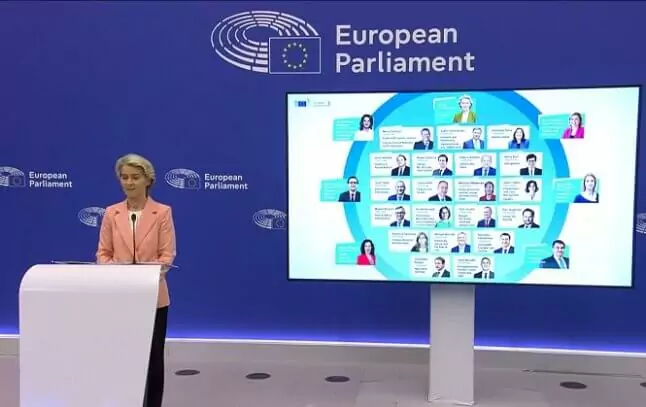France country update: Has the post-Macron era begun?

France is in a situation of unprecedented institutional fragility, in the absence of a clear majority in parliament and against a backdrop of rejection of President Macron by a large section of the political class and public opinion. This fragility goes hand in hand with a relative strategic downgrading of France on several international issues, in Africa, the Middle East and Asia-Pacific. Its economic fundamentals remain solid, despite weak growth and a debt-to-GDP ratio that is already exceeding 100%.
France's political situation is marked by great instability and uncertainty about the future
After his party lost the European elections on 9 June 2024, coming a distant second (14.60%) to Marine Le Pen’s Rassemblement National (31.37%), the President decided to dissolve the National Assembly (the lower house of the French Parliament) in accordance with his constitutional prerogatives. Motivating this unexpected decision by a need for “clarification”, and in the hope of regaining a majority in parliament, he took all the political commentators by surprise.
It caused confusion among the public and political class, starting with his own loyalists -including Prime Minister Gabriel Attal – who was apparently informed of his decision last minute. Above all, the media and the political system were extremely worried about the possible victory of the Rassemblement National in the legislative elections, which would give the far-right party the keys to power for the first time in the history of the Fifth Republic (1958).
The result of the early parliamentary elections puts France at risk of becoming ungovernable
Since his 2017 victory over Marine Le Pen of the Rassemblement National, French president Emmanuel Macron has governed with a centrist majority, aggregating the forces of the two former majority parties of the right (Les Républicains) and the left (Socialist Party). He was re-elected in 2022 at the end of the pandemic and the start of the war in Ukraine, but this time secured only a relative majority in parliament.
On 30 June, after a first-round victory for the Rassemblement National, which came first with 33.1% of the vote, followed by the left-wing Nouveau Front Populaire coalition (28%) and the presidential coalition (20%), the prospect of an absolute majority for the RN in Parliament prompted the resurgence of a “republican front”, under which any candidate who came off second best against a far-right candidate would stand down.
This “republican front” worked: in the second round on 6 July, the RN and its allies only came third with just 143 seats, far short of the 289 needed for an absolute majority in the National Assembly. The New Popular Front came in first with 182 seats, followed by the Presidential Majority with 168 seats. The fourth bloc, made up of the Republican centre-right, got 60 seats, giving it a potential blocking power.
The National Assembly is thus in a state of fragmentation unprecedented in the history of the Fifth Republic, making it very difficult to form a new government. In fact, no party can coalesce a majority around itself, and no configuration seems likely to break this institutional deadlock.
In this climate of uncertainty, several scenarios seem likely to emerge
We can expect in particular:
- The formation of a government based on a motley majority, drawing on parties from across the political spectrum – a hypothesis that seems quite unlikely as it stands, short of forming a relative majority. However, it is this path that is likely to occupy the next few weeks.
- In the medium term, the appointment of a technical government, whose sole function would be to administer the country, without the possibility of legislating, pending a possible new dissolution within a year (incompressible constitutional deadline for dissolving again).
- Finally, we cannot rule out a possible resignation of the French President under pressure from the various parties – including some of his allies – demanding that the “clarification” be completed. However, it is not certain that a new election will enable the country to break the deadlock if no majority emerges in parliament, possibly prompting institutional reform and the end of the Vth Republic as it stands.
Major structural reforms – unemployment insurance, pensions – will likely be put on hold, posing risks to public finances or to France’s reputation at the European level.
If you would like to discuss the domestic political situation further and understand what impact it will have on the business climate and macroeconomic framework, as well as on European and international policy, please do not hesitate to contact us.
Marc Reverdin, CEO, mr@reverdin.eu
Hakim El Karoui, Senior advisor, hakim.elkaroui@volentia.fr
We help our clients navigate political and financial dynamics, from regional to global.




